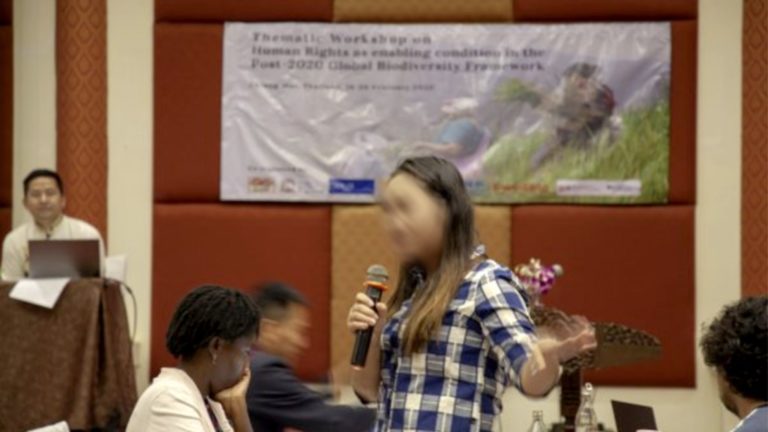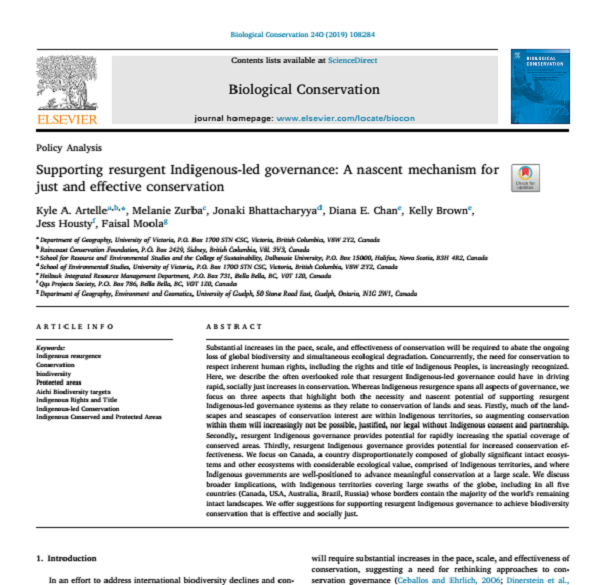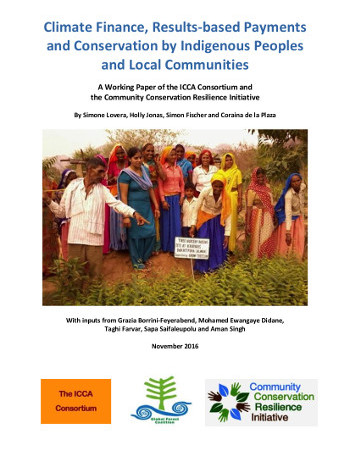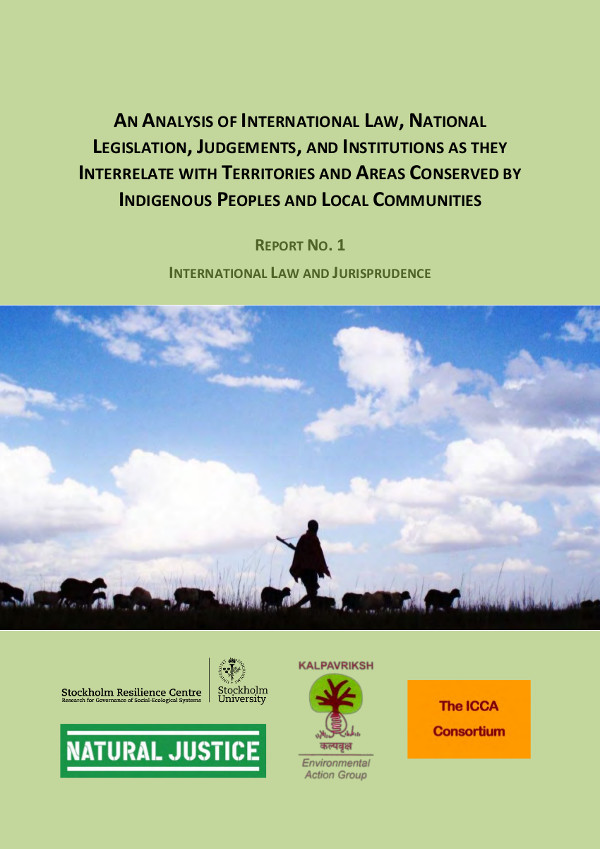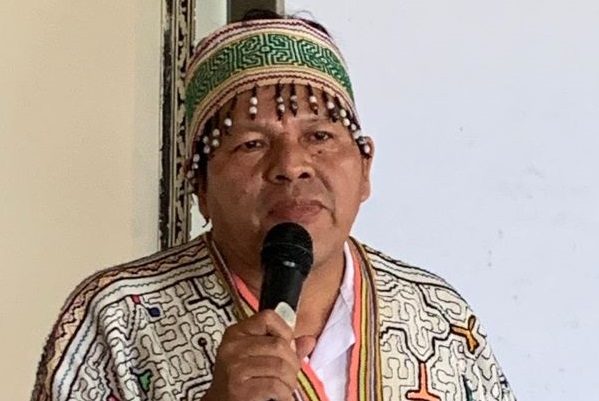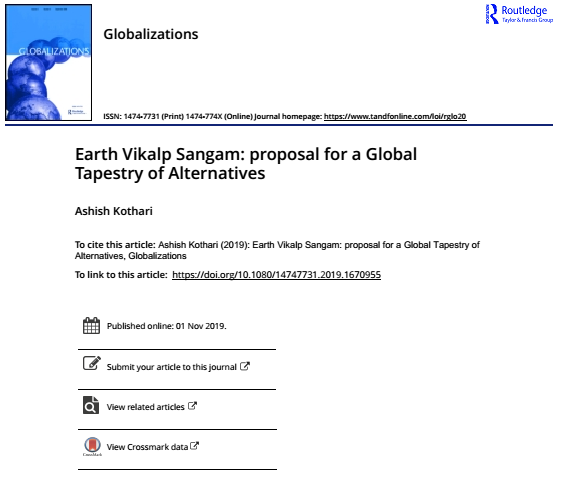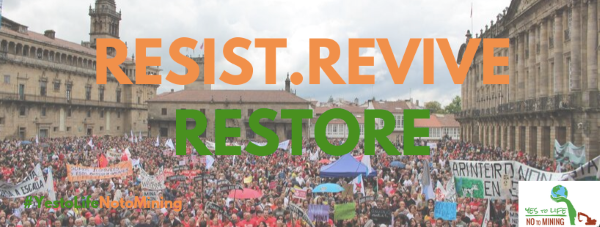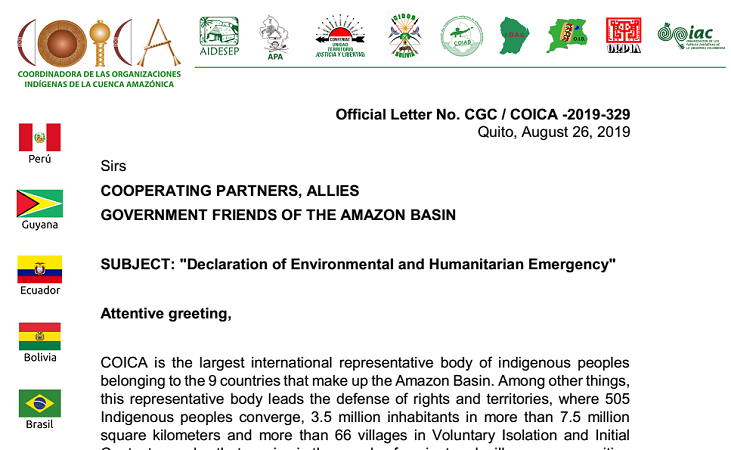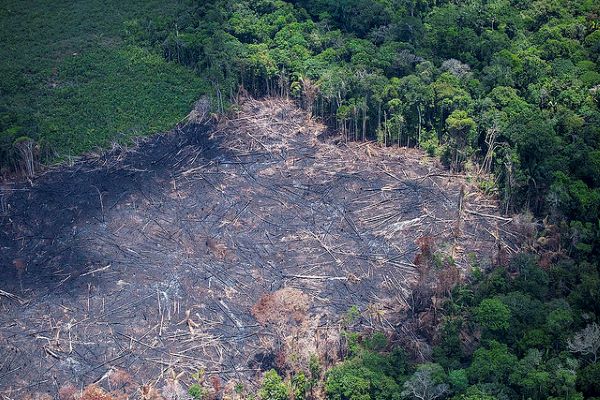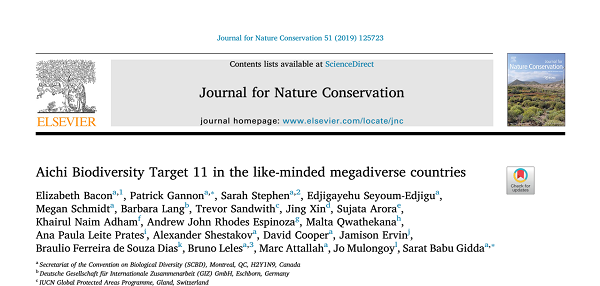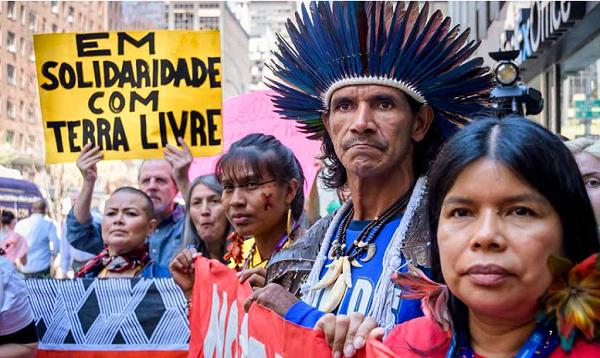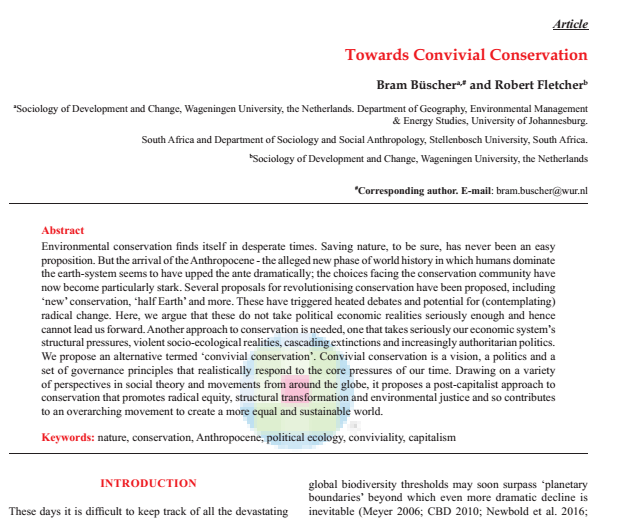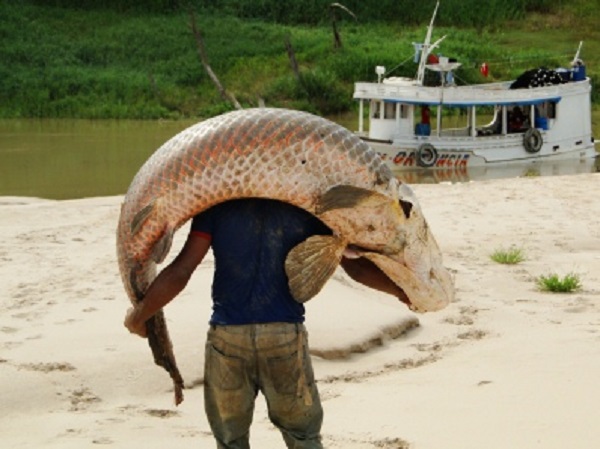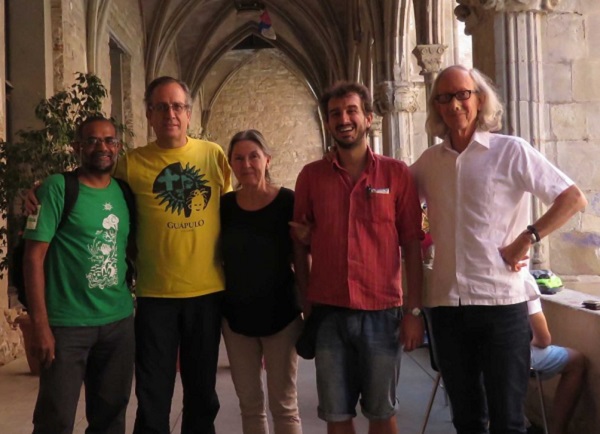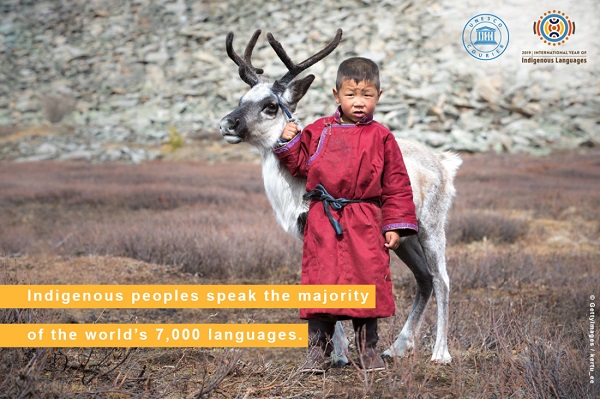Indigenous peoples and local communities are often on the frontlines of global environmental change – including climate change – due to their close interdependence with their territories and areas. They may face more severe impacts if they live in vulnerable ecosystems such as small islands, deltas, high altitude mountains, deserts and the Arctic. However, indigenous peoples and local communities have long managed variability, uncertainty and change through many generations of interaction with the environment. Indigenous and local knowledge systems and customary protocols can play a significant role in monitoring, preparing for and responding to climate change and extreme weather events, including in new situations such as climate-induced migration.
Indigenous peoples and local communities must be involved in decisions that affect them in the context of climate change mitigation and adaptation, disaster risk reduction and ecosystem restoration. Their rights, including to provide or withhold free, prior and informed consent, must be fully recognised and respected in relevant laws, policies, programmes and financing mechanisms, including those that could have perverse negative effects on ICCAs and their custodians.
At the international level, ICCA Consortium Members have been actively involved in the UN Framework Convention on Climate Change (UNFCCC), promoting the contributions of indigenous and traditional knowledge (particularly in the African region), and conducting critical analyses of land use change, climate finance schemes (such as the Green Climate Fund) and market- and results-based payment mechanisms. ICCA Consortium Members are also involved in work on climate change and ecosystem restoration under the Convention on Biological Diversity (CBD). In particular, Parties to the CBD recognise the role of ICCAs in strengthening ecosystem connectivity and resilience, maintaining essential ecosystem services and supporting biodiversity-based livelihoods (CBD Decision X/33, para 8(i)). Parties called for support for ICCAs and respect for indigenous peoples’ and communities’ traditional customary knowledge and practices when planning and implementing ecosystem restoration activities (CBD Decision XIII/5, Annex, para 15(1)). ICCAs are also recognised in CBD Technical Series No. 85 on “Experiences with Ecosystem-Based Approaches to Climate Change Adaptation and Disaster Risk Reduction”. As ICCAs often encompass more than one ecosystem, they can be seen as “territory-based” (rather than “ecosystem-based”) approaches to climate change adaptation and disaster risk reduction.
UN Special Rapporteur report on human rights and climate change (2016)
UN Special Rapporteur on the issue of human rights obligations relating to the enjoyment of a safe, clean, healthy and sustainable environment: report to… Read more “UN Special Rapporteur report on human rights and climate change (2016)” ▸
Sendai Framework for Disaster Risk Reduction 2015-2030
Sendai Framework for Disaster Risk Reduction 2015-2030 (endorsed in 2015) English | French | Spanish
Paris Agreement (adopted 2015)
Paris Agreement, UNFCCC (adopted 2015) English | French | Spanish
EMRIP Study and Advice on “Promotion and protection of the rights of indigenous peoples in disaster risk reduction, prevention and preparedness initiatives”
EMRIP Study and Advice on “Promotion and protection of the rights of indigenous peoples in disaster risk reduction, prevention and preparedness initiatives” (adopted in… Read more “EMRIP Study and Advice on “Promotion and protection of the rights of indigenous peoples in disaster risk reduction, prevention and preparedness initiatives”” ▸
UN Framework Convention on Climate Change
UN Framework Convention on Climate Change (adopted 1992) English | French | Spanish
UN Biodiversity Negotiators Must Protect Human Rights to Protect the Planet
ICCA Consortium Members, Honorary members and partners joined forces for an ambitious international workshop that could help change the course of the post-2020 global biodiversity framework – by putting human rights firmly at its centre. Read more ▸
Supporting Resurgent Indigenous-led Governance: A Nascent Mechanism for Just and Effective Conservation
Supporting resurgent Indigenous-led governance: A nascent mechanism for just and effective conservation, by Kyle A.Artelle, Melanie Zurba, Jonaki Bhattacharyya, Diana E.Chan, Kelly Brown, Jess… Read more “Supporting Resurgent Indigenous-led Governance: A Nascent Mechanism for Just and Effective Conservation” ▸
Arctic Indigenous Peoples Leading the Way in Ecological Restoration
Article : “Arctic Indigenous Peoples Leading the Way in Ecological Restoration” Hannibal Rhoades and Tero Mustonen (2017) Summary: A major new international study has… Read more “Arctic Indigenous Peoples Leading the Way in Ecological Restoration” ▸
Climate Governance: A matter of survival for nomadic pastoralists
Video: “Climate Governance: A matter of survival for nomadic pastoralists” IPACC (2016)
An Introduction to Integrating African Indigenous & Traditional Knowledge in National Adaptation Plans, Programmes of Action, Platforms and Policies
Report: “An Introduction to Integrating African Indigenous & Traditional Knowledge in National Adaptation Plans, Programmes of Action, Platforms and Policies” Nigel Crawhall, IPACC (2016)… Read more “An Introduction to Integrating African Indigenous & Traditional Knowledge in National Adaptation Plans, Programmes of Action, Platforms and Policies” ▸
Synthesis report on experiences with ecosystem-based approaches to climate change adaptation and disaster risk reduction
Report: “Synthesis report on experiences with ecosystem-based approaches to climate change adaptation and disaster risk reduction” Veronica Lo (2016) Secretariat of the Convention on… Read more “Synthesis report on experiences with ecosystem-based approaches to climate change adaptation and disaster risk reduction” ▸
Climate Finance, Results-based Payments and Conservation by Indigenous Peoples and Local Communities
Lovera, S., H. C. Jonas, S. Fischer and C. de la Plaza, with G. Borrini-Feyerabend, M. E. Didane, T. Farvar, S. Saifaleupolu, and A.… Read more “Climate Finance, Results-based Payments and Conservation by Indigenous Peoples and Local Communities” ▸
Hindou Oumarou Ibrahim (AFPAT, Chad) speaks at UN Paris Agreement Signing, 22 April 2016
Video: “Hindou Oumarou Ibrahim (AFPAT, Chad) speaks at UN Paris Agreement Signing, 22 April 2016” UN Non-Governmental Liaison Service (2016) Summary: UN Secretary-General Ban… Read more “Hindou Oumarou Ibrahim (AFPAT, Chad) speaks at UN Paris Agreement Signing, 22 April 2016” ▸
Reducing Emissions from Deforestation and Forest Degradation (REDD+): Safeguards
E-learning module: “Reducing Emissions from Deforestation and Forest Degradation (REDD+): Safeguards” Natural Justice (2014) Summary: This module aims to provide an introduction to some… Read more “Reducing Emissions from Deforestation and Forest Degradation (REDD+): Safeguards” ▸
Non-market-based Approaches to Reducing Deforestation and Forest Degradation
Report: “Non-market-based Approaches to Reducing Deforestation and Forest Degradation” Global Forest Coalition, ICCA Consortium and Econexus (2013) Summary: Market mechanisms have proven to be… Read more “Non-market-based Approaches to Reducing Deforestation and Forest Degradation” ▸
Reducing Emissions from Deforestation and Degradation (REDD)
E-learning module: “Reducing Emissions from Deforestation and Degradation (REDD)” Natural Justice (2012) Summary: This module seeks to prepare communities and their allies to engage… Read more “Reducing Emissions from Deforestation and Degradation (REDD)” ▸
Briefing note on ICCAs and climate change distributed at UNFCCC COP18 (Doha, 2012)
Meeting dates: 26 November-8 December 2012 Location: Doha, Qatar Briefing Note: “ICCAs, climate change and international climate change–related policies and mechanisms.” distributes at UNFCCC… Read more “Briefing note on ICCAs and climate change distributed at UNFCCC COP18 (Doha, 2012)” ▸
Legal Review No 1 International Law and Jurisprudence
Legal Review No 1 International Law and Jurisprudence This report is part of a larger study conducted by the ICCA Consortium between 2011-2012, which… Read more “Legal Review No 1 International Law and Jurisprudence” ▸
Mera Declaration of the Global Gathering of Women Pastoralists
Declaration: “Mera Declaration of the Global Gathering of Women Pastoralists” (2010) Summary: A global gathering of women pastoralists in Mera, India, from 21-26 November… Read more “Mera Declaration of the Global Gathering of Women Pastoralists” ▸
The hottest REDD issues: Rights, Equity, Development, Deforestation and Governance by Indigenous Peoples and Local Communities
Discussion paper: “The hottest REDD issues: Rights, Equity, Development, Deforestation and Governance by Indigenous Peoples and Local Communities” Simone Lovera, in consultation with Jacques… Read more “The hottest REDD issues: Rights, Equity, Development, Deforestation and Governance by Indigenous Peoples and Local Communities” ▸
The 4C Factor: Community conservation and climate change
Peer-reviewed article: “The 4C Factor: Community conservation and climate change” Ashish Kothari (2008) Biodiversity 9(3-4): 19-23 Abstract: ICCAs are sites of biodiversity significance that… Read more “The 4C Factor: Community conservation and climate change” ▸
Video: Interview with Julio Cusurichi about the Defense of the Territory in the Amazon
Ashish Kothari interviews Julio Cusurichi, indigenous leader of the Shipibo people and President of ICCA Consortium Member FENAMAD, about territorial defense, threats, hopes and proposals of the communities represented by FENAMAD. Read more ▸
Earth Vikalp Sangam: Proposal for a Global Tapestry of Alternatives
“Globally, there is a visible counter-trend to the destructive process of ‘development’ that the forces of capitalism, statism, and patriarchy have imposed”. In this article, Ashish Kothari (Member of the ICCA Consortium Council of Elders) introduces a new global initiative, attempting to weave together the various movements seeking alternatives to mainstream development. Read more ▸
Yes To Life, No To Mining Launches new ‘Emblematic Cases’ From Frontline Communities
A new collection of interactive case studies from the Yes to Life, No to Mining Network, of which the ICCA Consortium is part, shares the stories of communities resisting mining, restoring damaged ecosystems, and protecting and developing alternatives to extractivism. Read more ▸
COICA declares the Amazon in Environmental and Humanitarian Emergency and Calls to Solidarity
As the Amazon forest continues to burn for more than 20 days without effective action being taken by the Brazilian and Bolivian governments, COICA is calling out to international allies for solidarity and urgent assistance, to gather funds to stop fires and help local communities recover. Read more ▸
Crocodile Tears Will Not Help To Put Out The Amazon’s Fires
As the Amazon continues to burn and the world watches in horror, Simone Lovera from Global Forest Coalition, ICCA Consortium Member, reminds us of the largest root causes of the fires: industrial beef and soy production. Read more ▸
Aichi Biodiversity Target 11 In The Like-Minded Megadiverse Countries
This article, from the Journal for Nature Conservation, recognizes the central role of ICCAs – territories of life in conservation. It demonstrates that their recognition among academics is increasing dramatically. Read more ▸
Report : Enemies of the State? How Governments and Business Silence Land and Environmental Defenders
How is violence used against individuals and communities, mostly indigenous, who defend their lands and environment? This Global Witness report analyses 2018 key data and figures, along with human stories about the criminalisation and killings of land and environment defenders. Read more ▸
Towards Convivial Conservation
In this article, Bram Büscher (ICCA Consortium Honorary Member) and Robert Fletcher propose an alternative perspective to conservation. Named ‘convivial conservation’, this post-capitalist approach promotes radical equity, structural transformation and environmental justice. Read more ▸
Local Commons for Global Benefits: Indigenous and Community-based Management of Wild Species, Forests and Drylands
In this article, Rosie Cooney and Brian Child, Honorary Members of the Consortium, discuss how strengthening community rights to manage land and resources is showing promise as an effective approach to advance the aims of biodiversity, climate change mitigation, and land degradation objectives. Read more ▸
Pluriverse : A Post-Development Dictionary
Lead edited by ICCA Consortium Council of Elders member Ashish Kothari, several Member representatives and Honorary members participated in the elaboration of this volume, creating a stimulating collection of over 100 essays on transformative alternatives to the current dominant processes of globalized development. Read more ▸
EMRIP Statement on the International Year of Indigenous Languages 2019
The UN Expert Mechanism on the Rights of Indigenous Peoples (EMRIP) commemorates the launch of the International Year of Indigenous Languages, acknowledging the critical role of Indigenous ecological knowledge for maintaining biodiversity and addressing climate change. Read more ▸
Indigenous Peoples and Climate Change: From Victims to Change Agents through Decent Work
Report: “Indigenous Peoples and Climate Change: From Victims to Change Agents through Decent Work” ILO (2017)
Indigenous Peoples & Local Community Tenure in the INDCs: Status and Recommendations
Report: “Indigenous Peoples & Local Community Tenure in the INDCs: Status and Recommendations” Rights and Resources Initiative (2016)
Securing Rights, Combating Climate Change
Find here the report Securing Rights, Combating Climate Change, How Strengthening Community Forest Rights Mitigates Climate Change and read more here.
First published on 05/29/2016, and last updated on 07/03/2017

